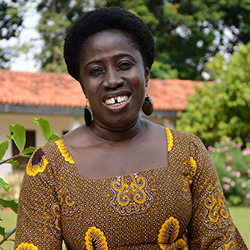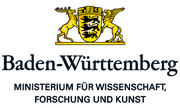Interview with Archivist Judith Opoku-Boateng from Ghana

What sparked your passion for preserving Africa’s audiovisual heritage?
My passion for preserving Africa's audiovisual heritage was ignited by a deep-rooted connection to my culture and a desire to understand the rich history and theories of my ancestors. Growing up, I was immersed in our traditions by my grandmother, uncles and aunties, through story-telling - particularly of Kwaku Ananse (the spider), including folk songs, local games (like ‘Ampe’ and ‘Antoakyire’), as well as other vibrant traditions from my community.
These rich traditions have unfortunately become extinct in recent times, as a result of modernisation. Meanwhile, some thoughtful researchers during the first and second quarter of the 20th Century have captured some of these traditions on magnetic tape media for posterity. These priceless assets are currently sitting in many archives in Africa whilst some have already been lost due to neglect, poor storage conditions (causing physical decay), as well as technological obsolescence. So witnessing the loss of these valuable cultural heritage across the archive spaces in Africa, and particularly Ghana, fuelled my determination to contribute to their preservation.
These precious assets, which I refer to as ‘human babies’ (see: Opoku-Boateng 2017), need archivists to be their mouthpieces, generous carers and emergency responders. This initiative will halt the further deterioration of these tapes, creating an opportunity for their preservation through eventual migration from analogue to digital formats.
Additionally, serving as an archivist in the J. H. Kwabena Nketia Archives at the Institute of African Studies in the University of Ghana, and having served on the Executive Board of the International Association of Sound and Audiovisual Archives (IASA), I have witnessed the global lack of representation and documentation of African voices in audiovisual platforms. Therefore, I have committed to ensuring .that African stories, sounds, and memories are preserved in their authenticity and shared with the world, recognizing the importance of this legacy in shaping identity and history.
From your point of view, what role do archives play in the restitution debate?
For the past few years since the restitution debate and process began, the concentration has been on artifacts/museum objects with minimal to no inclusion of the archives in these discussions. So when I was invited to contribute to discussions on the topic during the MIASA workshop on Restitution in Freiburg, I really felt pleased, and I want to thank the organisers for being so diverse in their thinking, by including perspectives on the archives.
Archives hold the records that document the provenance of cultural objects, the circumstances of their displacement, and the histories of the communities to which they belong. These archives are essential in verifying ownership, providing historical context, and facilitating claims for restitution. By preserving and making accessible these materials, archives help reclaim narratives that were once silenced or erased by colonial histories.
Additionally, Archives play a dual role: first, they safeguard the tangible and intangible heritage of African societies, ensuring that the materials and stories within them are preserved for future generations. Secondly, they support the restitution process by providing the documentary evidence needed to trace the origins of cultural objects and substantiate claims for their return. A typical example is the 1971 film by Nii Kwate Owoo, “You Hide Me”, which has provided evidence to the international community about looted artifacts from Africa and sparked several debates on Restitution, Reparations and Repatriation.
What are the biggest challenges you face in preserving endangered audiovisual heritage?
Audiovisual heritage preservation has not been doing good from where I come from. These are due to several significant challenges, many of which are both technical and institutional.
The following are some of the factors generally affecting audiovisual heritage preservation in Ghana: Budgetary constraints, lack of vintage film contents, ill-equipped staff without the requisite skills and knowledge to manage collections, lack of passion on the part of most heritage practitioners, climate conditions which are detrimental to magnetic tapes and the worst of them all, technological obsolescence.
For me, the key challenges that affect my work is limited staff. My unit has been engaged in several initiatives which requires more staff, but unfortunately, archivists are becoming extinct. Additionally, budgetary constraints is a huge impediment to our work. Digital preservation is also one of the key challenges we face. Digital files are not immune to obsolescence, and the rapid pace of technological change means that digital formats and storage solutions can become outdated quickly. Maintaining access to digital materials over time requires constant migration to new formats and platforms, which is a labour-intensive and costly process. Additionally, lack of colonial and post colonial film contents in our archive is also a challenge, as researchers, filmmakers, students and faculty members keep knocking on our doors inquiring about films produced in the 1950s, 1960s and 1970s. This leaves us with no choice but to request for such films from our European or American partners.
Despite these challenges, our passion for revolutionising audiovisual heritage preservation is resolute. We are driven by the knowledge that these materials are not only historical artifacts but living cultural expressions that connect generations. By combining innovation, advocacy, and collaboration, we strive to ensure that Africa’s rich audiovisual heritage is preserved, accessible, and celebrated, both now and in the future. This mission fuels our commitment to safeguarding these irreplaceable cultural treasures and ensuring they continue to inspire and inform for years to come.
What key points from your own work did you bring to the restitution workshop here in Freiburg, and can you share one of your most relevant experiences?
As an advocate for audiovisual archives, and coming from a country whose indigenous film heritage has been swept away as a result of economic reforms, fire disaster, neglect and technological obsolescence, I shared insights during the restitution workshop on the fact that the only available option of Ghana’s film history resides in archive institutions in the global North, particularly, Europe and America.
These surviving cinematic records are largely those made by Europeans during the colonial and early post-colonial periods, often portraying the country through a Eurocentric lens. These films, while historically valuable, were created with pre-conceived notions and biases that do not accurately reflect Ghanaian experiences and identities.
My claim was that, for educational, research and entertainment purposes, it is crucial to negotiate for these films and recontextualize and re-situate these films to better serve the current generation. This involves a critical engagement with the content to unpack the colonial narratives and to reinterpret them within the contemporary Ghanaian socio-cultural context. By doing so, we can provide the academic community and civil society with a more refined understanding of our history and heritage, ensuring that these films become tools for empowerment rather than perpetuators of outdated stereotypes. – as Restitution is about acknowledging historical injustices, rectifying wrongs, and promoting cultural sovereignty and identity.
"I believe in practicing what I preach, so let me briefly share a recent experience that illustrates this. I recently engaged with European films from the late 1950s that depict post-colonial Ghana. The first film, The New Ghana, was made by a German filmmaker for schoolchildren in West Germany and donated to our archive by German scholar Dr. Tobias Robert Klien. The second, Ghana Today, was produced by a filmmaker from East Germany, highlighting Ghana's alignment with socialist ideals. This film was donated by Professor Erica Carter, with the kind permission of the Bundesarchiv.
Together with my team and the donors, I curated these films, carefully unpacking the European narratives they presented and reinterpreting them within our own sociocultural context. This process had a profound impact on our community, as it allowed the audience to view the films through a historical lens and reflect on the perspectives from which these narratives were originally constructed."
https://ias.ug.edu.gh/content/mrs-judith-opoku-boateng






